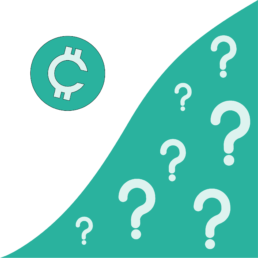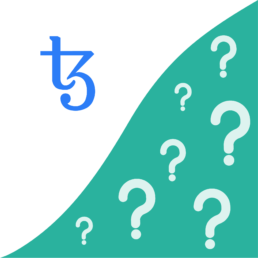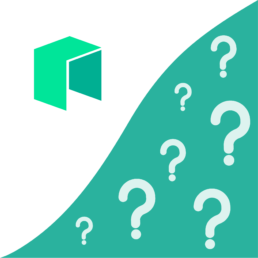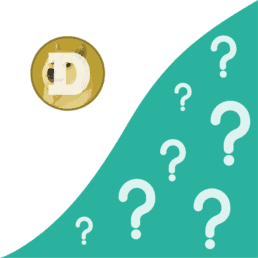What is Ethereum?
Ethereum is one of the most well known cryptocurrencies and is consistently the second largest based on market cap.
Ethereum operates as a decentralised ledger of digital records linked using advanced cryptography, or put more simply a Blockchain.
Ethereum is a decentralised blockchain network, meaning it’s not governed by any central authorities, like a corporation or government. Additionally, Ethereum has some ‘first-of-its-kind’ features that made it a long term favourite amongst crypto investors and blockchain enthusiasts.
Ethereum is the ‘world’s programmable blockchain network’, where anyone can code and deploy decentralised applications (DApps) to run on the network. The expansive use cases for the Ethereum network has been seen as one of the key drivers of its current success.
So that’s a quick overview of Ethereum, if you’re interested in some of the finer details keep on reading:
Building the 'world's computer'
The Ethereum blockchain has ‘smart contract functionality’, a smart contract is a self-executable program that runs on the blockchain network. These Smart contracts enable developers to run and deploy decentralised applications (DApps) on the Ethereum blockchain network.
There are hundreds of DApps on the Ethereum platform including games, decentralised finance applications(Defi) and everything in between. This is why some people in the crypto space have compared the growth and the development of the Ethereum network to ‘building the world’s computer’.
Decentralised consensus
As the Ethereum blockchain isn’t governed by central authorities, the transactions are validated by stakers.
Ethereum implements a proof-of-stake consensus. Unlike proof-of-work consensus, it is not subject to centralisation. In a proof-of-stake consensus, stakers hold a certain amount of Ether (ETH) as a deposit. The Ethereum algorithm then randomly selects stakers to validate any transactions taking place on the network.
Security not surveillance
In the current age of the internet there is an incredible volume of systems and organisations vying to obtain your data, Ethereum promises robust security.
The applications you generally use day to day are likely managed by a central server at a company who collect, store and often sell your data leaving it vulnerable to being hacked.
Ethereums public blockchain platform combats this, by distributing data across thousands of nodes across the global network. This makes it impossible to hack Ethereum.
Creating a smart economy
Our current financial systems involve using banks or ‘middle men’ like Western Union to enable transactions between two or more parties. These are often costly and can, even in the age of the internet, take days on end. This can be exacerbated in complex scenarios where funds are transferred between countries.
The Ethereum blockchain enables you to transfer crypto funds across the globe for a fraction of the cost of a traditional transaction within minutes.
Ethereum reduces dependence on intermediaries, creating a smart self-independent economy where everyone can transfer funds at a minimal cost, however large or small the transaction. As time passes this makes Ethereum a more and more attractive proposition for people across the globe.
Learn more about cryptocurrency
What is Bitcoin?
What is crypto
What is Cryptocurrency?
What is crypto
What is a Blockchain?
What is crypto
What is Money?
What is crypto
What is DeFi?
What is crypto
What is Chainlink?
What is crypto
What is a Whitepaper?
What is crypto
What is an ERC-20 Token?
What is crypto
What is Proof of Stake?
What is crypto
What is Proof of Work?
What is crypto
What is Stellar?
What is crypto
What is Tezos?
What is crypto
What is a Stablecoin?
What is crypto
What is Litecoin?
What is crypto
What is Cardano?
What is crypto
What is NEO?
What is crypto
What is Monero?
What is crypto
What is Bitcoin Cash?
What is crypto
What is Polkadot?
What is crypto
What is Basic Attention Token?
What is crypto
What is Solana?
What is crypto
What is Binance Coin?
What is crypto
What is Dogecoin?
What is crypto
What is a Bitcoin ETF?
What is crypto
What is a NFT?
What is crypto
Sign up to our newsletter
What is cryptocurrency?
Where to buy cryptocurrency?
How to buy cryptocurrency?
Manage cryptocurrency
Disclaimer
Our publications do not offer investment advice and nothing in them should be construed as investment advice. Our publications provide information and education for investors who can make their investment decisions without advice. The information contained in our publications is not, and should not be read as, an offer or recommendation to buy or sell or a solicitation of an offer or recommendation to buy or sell any cryptocurrency. Prices of cryptocurrency may go down as well as up and you may not get back the original amount invested. You should not buy cryptocurrency with money you cannot afford to lose. To see our full disclaimer click here.

























